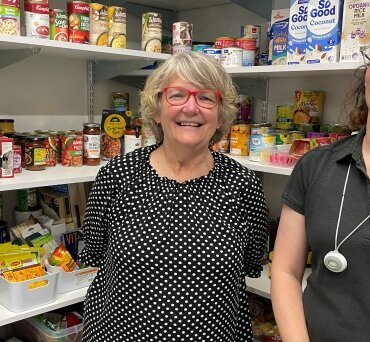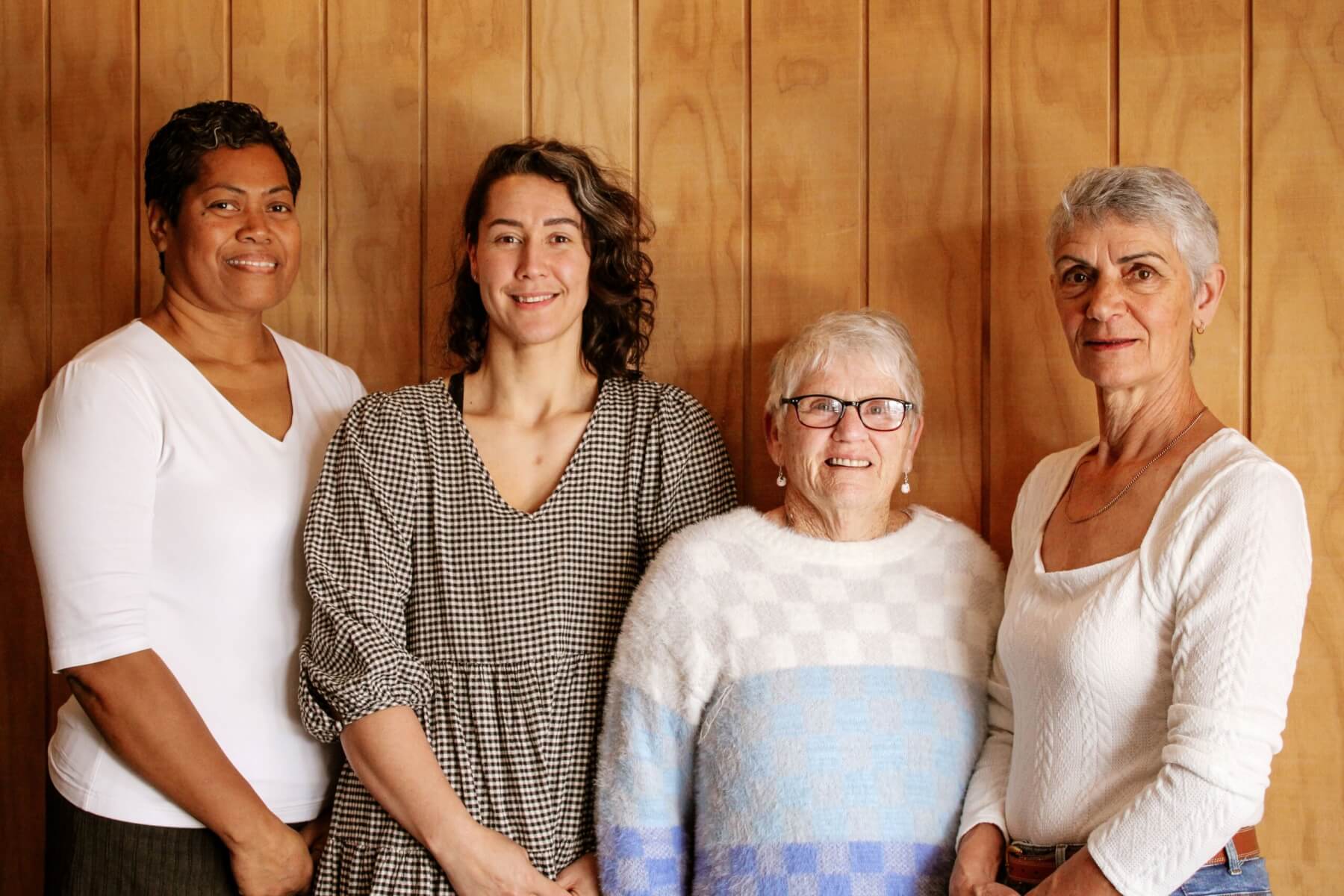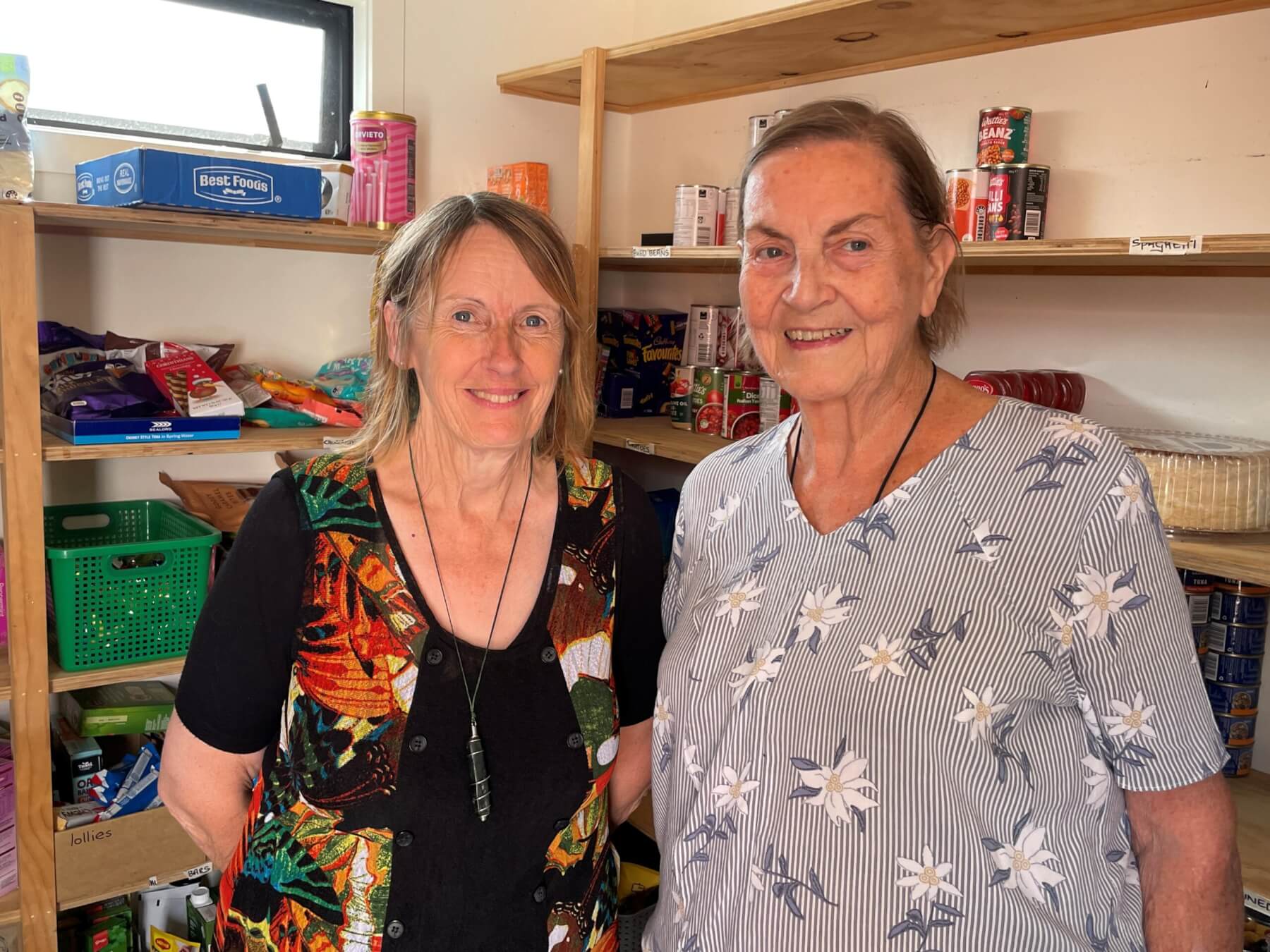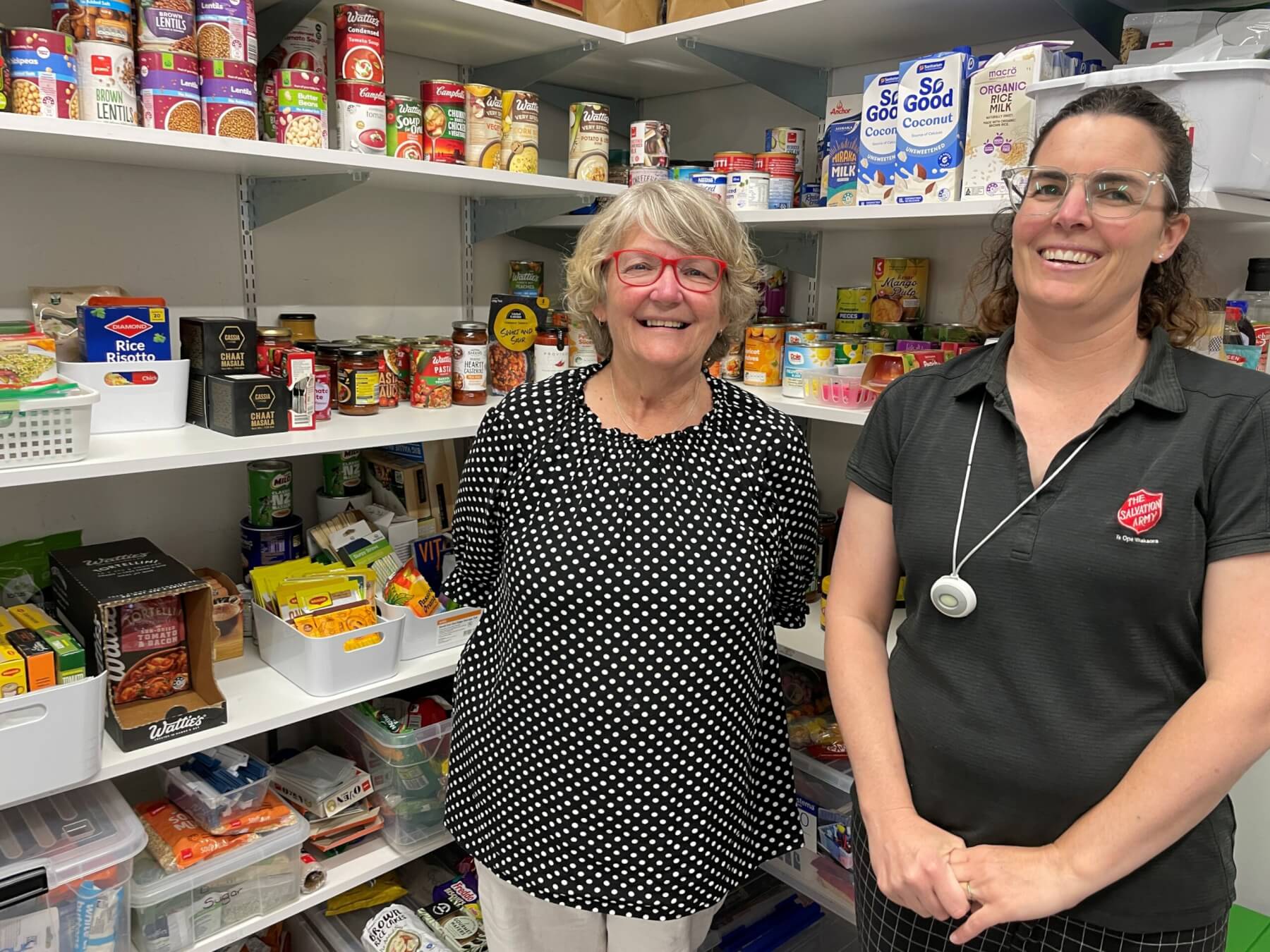
Julieanne Seath, left, and Anneka Vuletich
The post-Christmas credit crunch is showing in Waipā.

Mere Vono, Deeana Bradley, Leone Kretschmer, and Rowena Bradley.
Checks on the region’s foodbanks finds a consistent story – the demand for help continues to grow.
The Cambridge Corps of the Salvation Army food bank report it could reach record levels.
“Demand for food parcels is definitely increasing,’ said Salvation Army community engagement team leader Julieanna Seath.
“There was a stage last year’s where we were giving away in excess of 100 parcels per month,” she said.
“We are currently sitting at about 80 per month but with the Government making cuts, Christmas expenses, back to school costs, I would not be surprised to see it increase to more than 100.”
The food bank supplied up to 130 parcels a month in 2023.
Seath said it was not just beneficiaries and the homeless looking for help, but people from dual income families who found finances stretched through no fault of their own.

Sue Goodridge, left, and Rita Middleton
The Salvation Army also regularly helps people with clothes and furniture, as well as well as the growing homeless with a shower, Seath said.
“We have some really big donors, including one who comes in with $2000 worth of groceries for us a couple of times per year. Some farmers kill an extra beast, have it cut up and put in our freezer, and clubs, organisations and schools donate.”
Around $1000 a week is spent on supplementing the foodbank to ensure it has enough stock.
Te Awamutu Combined Churches Foodbank says it needs more food, more space to store it, and more volunteers to pack it.
Foodbank co-ordinator Rita Middleton has a growth story that nobody wants to hear.
“Our demand is huge, with an increased in needs over two years,” she said.
Demand in that time has almost doubled. Volunteers handed out 784 parcels last year, compared to 500 in 2023, and 400 in 2022.
“In the first week back after the Christmas break, we handed out 23 parcels,” Middleton said. “It really is a matter of people coming to us and saying, ‘we have no food to feed our children’.”
Food is donated by churches, individuals, supermarkets, and the Kaivolution scheme, as well as funded through cash donations.
While the shelves are far from empty, Middleton said there was a strong need for the staples as well as supplies for new mothers such as baby wipes and nappies as well as feminine products.
As demand increases Middleton said, so does the need for storage and the organisation is quickly running out of space. She also needs people to help prepare food parcels and deliver them in some cases.
“We need more volunteers,” Middleton said.

Cambridge Corps of the Salvation Army community engagement team leader Julieanne Seath, left with community wellbeing officer Anneka Vuletich.








